On 18 November 2024, the TRANSIT think tank invited participants to the Photobastei in Zurich to reflect on and discuss future skills. Together, the participants considered the future demands on adult education in the context of a changing society. Among other things, the focus was on the question of how future skills can go beyond the promotion of individual competences to include social visions and values. The combination of theoretical impulses, critical reflection and creative approaches provided a platform that encouraged visioning.
The Photobastei as a place for creative encounters
The event attracted a mixed group of participants mirroring the diversity of actors in adult education. In addition to representatives from adult education institutions, there were also self-employed people, companies and public organisations. What the participants had in common was that they liked to think creatively and were interested in the future of adult education and learning.
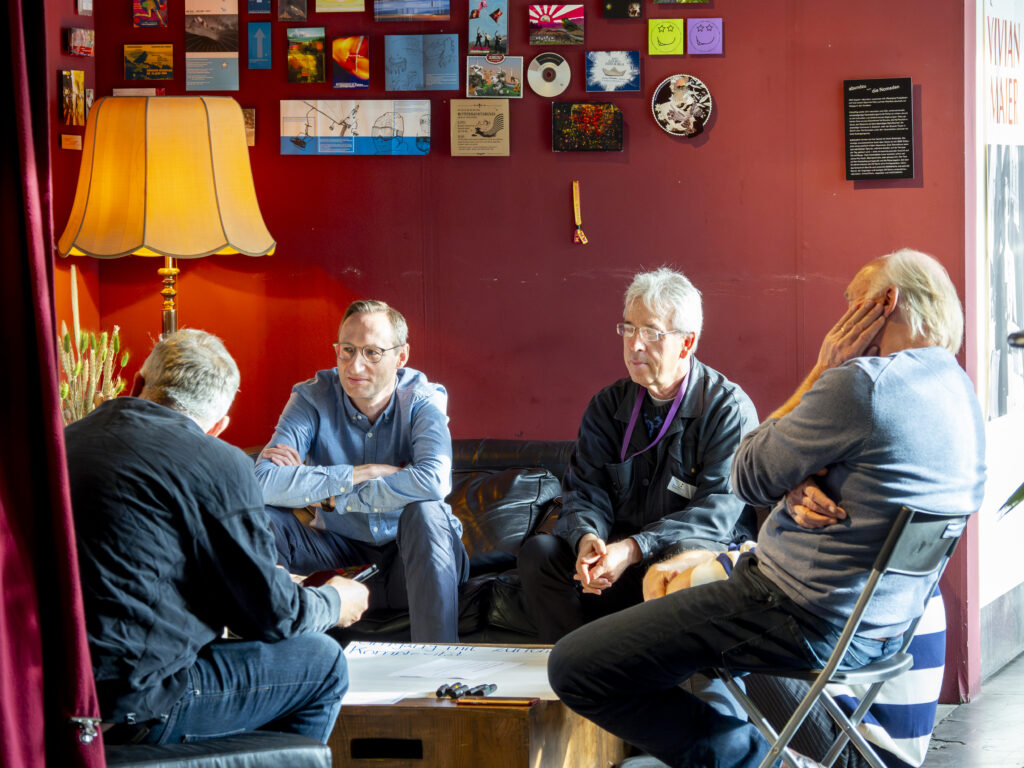
Photo: Irena Sgier
The event took place at the Photobastei in Zurich, a venue that perfectly suits the way the think tank works. The Photobastei is a space characterised by its provisional design and unconventional atmosphere. Nothing is finished or perfect here. This environment opens up space for creative processes and new perspectives. It invited participants to question familiar thought patterns and discover new approaches to adult education.
Motivation for Future Skills
Participants began by discussing what they wanted to achieve with Future Skills, what motivated them to engage with Future Skills, and what experiences they had already had. The responses to these questions were varied and showed that Future Skills is a topic that is relevant to many areas of adult learning.
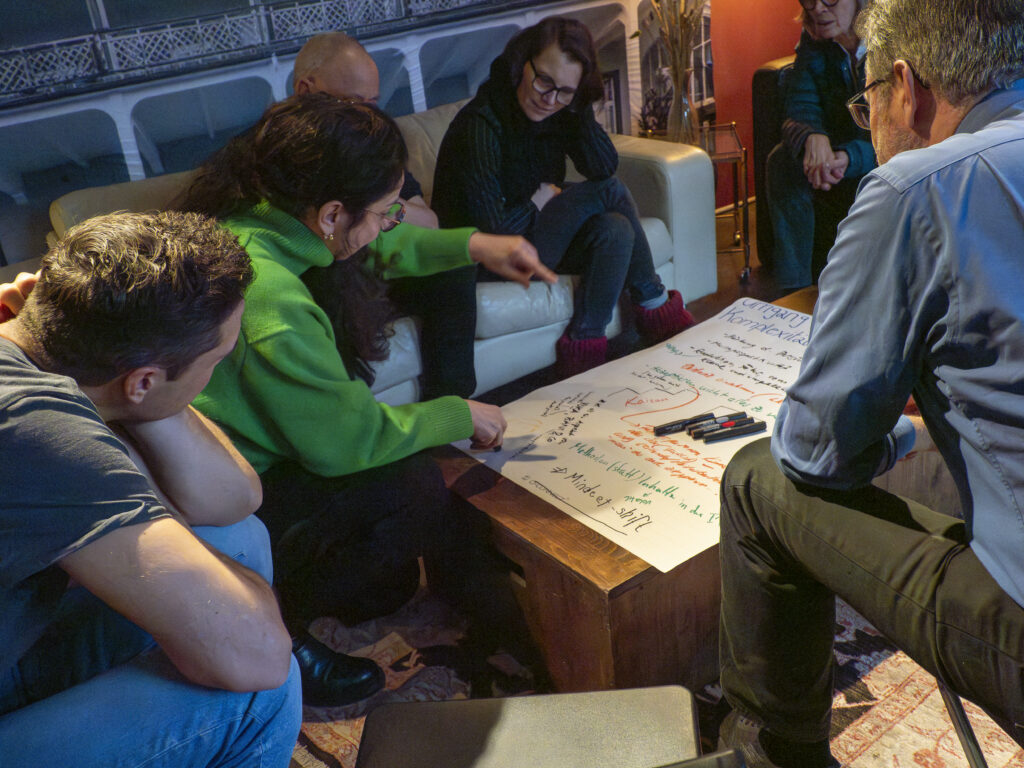
Photo: Irena Sgier
Keynote speech: Framing the discussion
To provide a contextual framework for the discussion, Helen Buchs, director of TRANSIT, gave a presentation raising some key questions about the role of future skills in adult learning. The presentation summarised some reflections from the draft of the next TRANSIT Trend Report. As the TRANSIT Trend Report on Future Skills is not only intended to analyse existing skills frameworks, a critical examination of the underlying assumptions about possible futures and societal visions was a central element of the presentation.
The presentation emphasised that future skills frameworks are not universally valid or static, but are shaped by the specific cultural and social contexts in which they are developed and applied. This contextual perspective requires educational institutions not only to be flexible in responding to different needs, but also to reflect consciously on the underlying values and discourses.
Another key point of the presentation was the importance of future skills as “tools for shaping the future”. This was because our ideas about the future would influence our current actions and, at the same time, decisions made in adult education today would have an impact on the conditions of future societies. Future Skills was therefore not just about skills frameworks, but about the future. Future skills frameworks also reflect much more than the demand for skills in response to technological and social trends. Dealing with future skills therefore requires new spaces in which ideas about the future can be critically questioned and rethought.
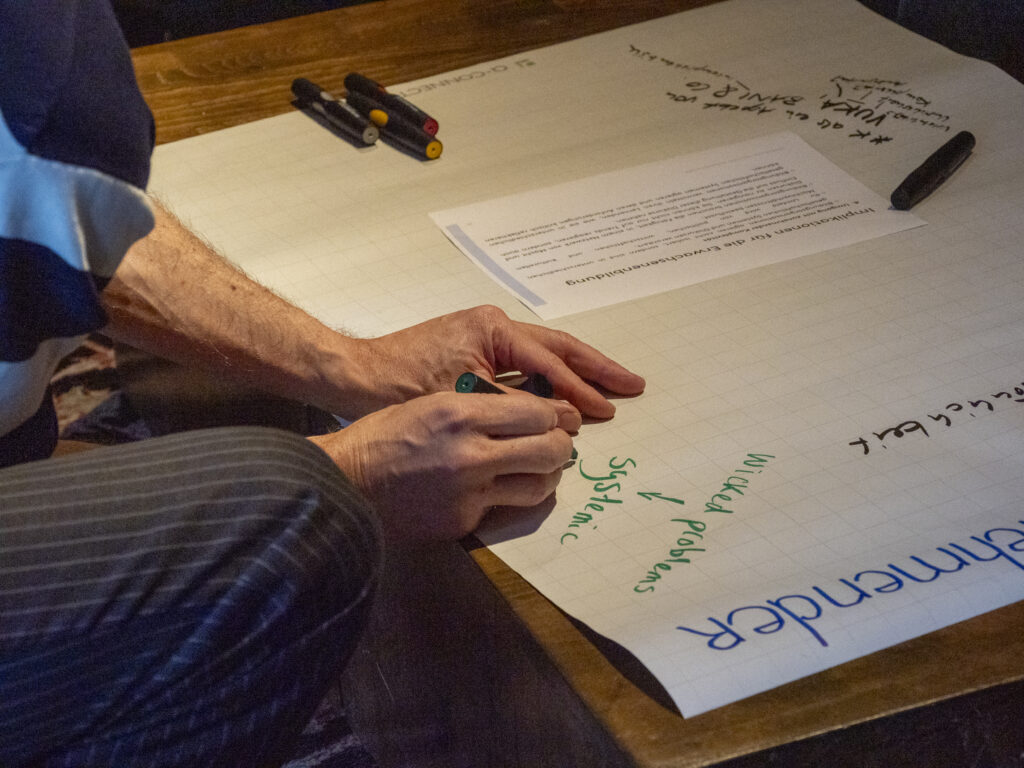
Photo: Irena Sgier
Implications for adult learning in dealing with future skills
The subsequent discussions centred on seven implications derived from the considerations of future skills presented in the paper. These ranged from philosophical considerations to practical suggestions and were then taken up in an open space format. Participants moved freely between the implications posters, contributing their perspectives and then presenting some key ideas in plenary. The results can be summarised as follows:
The future as a space of possibilities
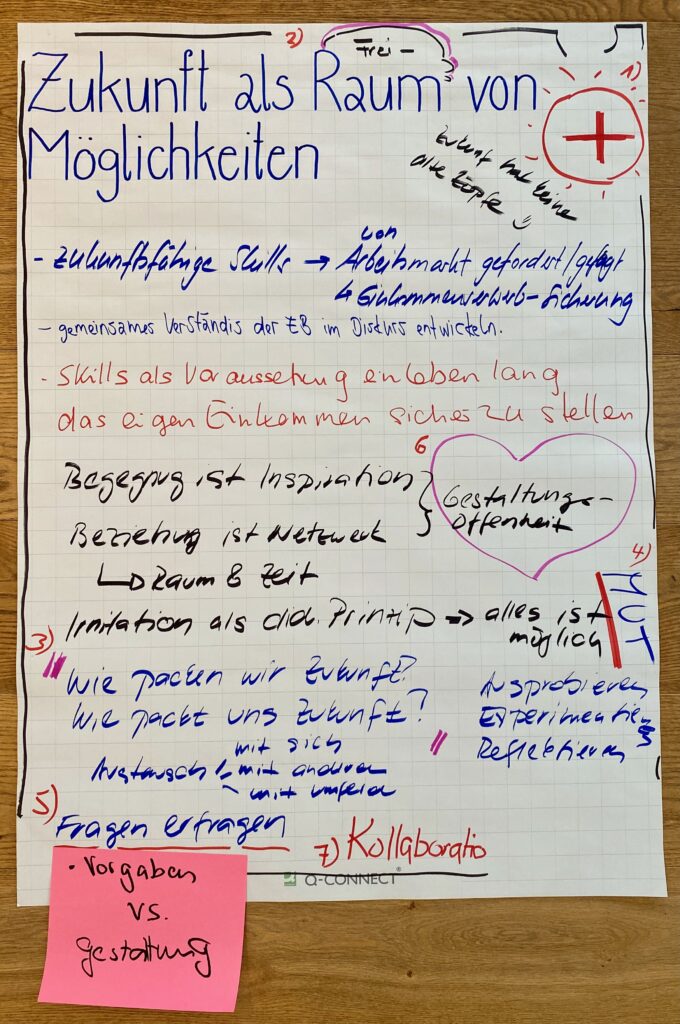
The future is understood as a space of openness and creative freedom. The discussion centred on how education stakeholders can use this freedom. It was asked how they can shape the future and when it is appropriate to react to trends. It was stressed that courage and openness are needed to identify and seize opportunities. Asking questions was emphasised as a key component in fostering openness and creativity in learning processes.
Plurality of change processes and context sensitivity
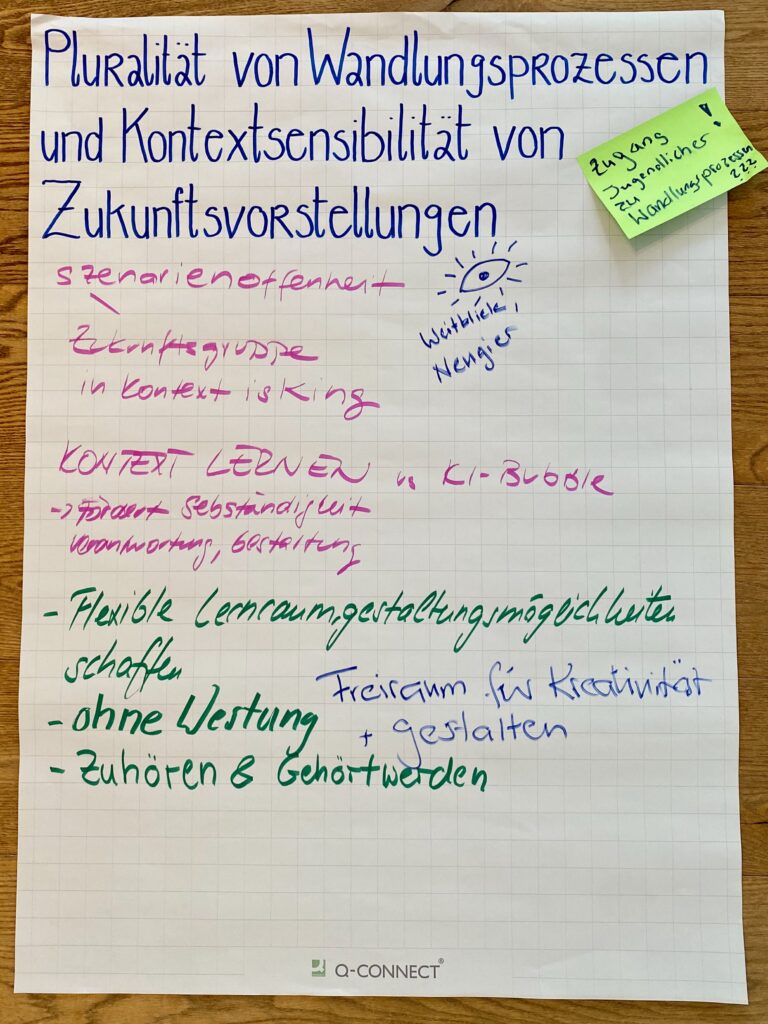
It was discussed that the diversity of change processes in different social and professional contexts requires adult education to be open to scenarios. Context sensitivity means responding to the specific needs and realities of learners and using them as a starting point for individual and collective development processes.
Acceleration and Deepening
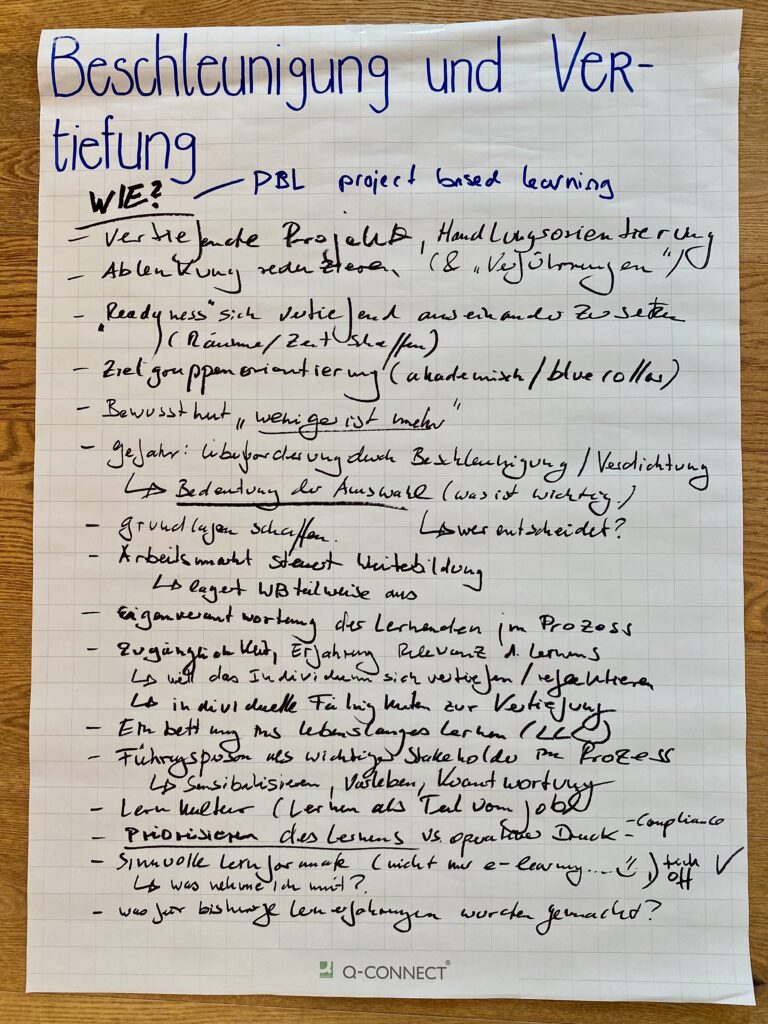
In an accelerated world, the ability to prioritise is key. The discussion centred on who decides what content is relevant and what is not. It was emphasised that less is often more: only by selecting truly relevant topics can deep and sustainable learning be achieved. There was a desire for a learning culture that consciously allows time for prioritisation and reflection.
Managing increasing complexity
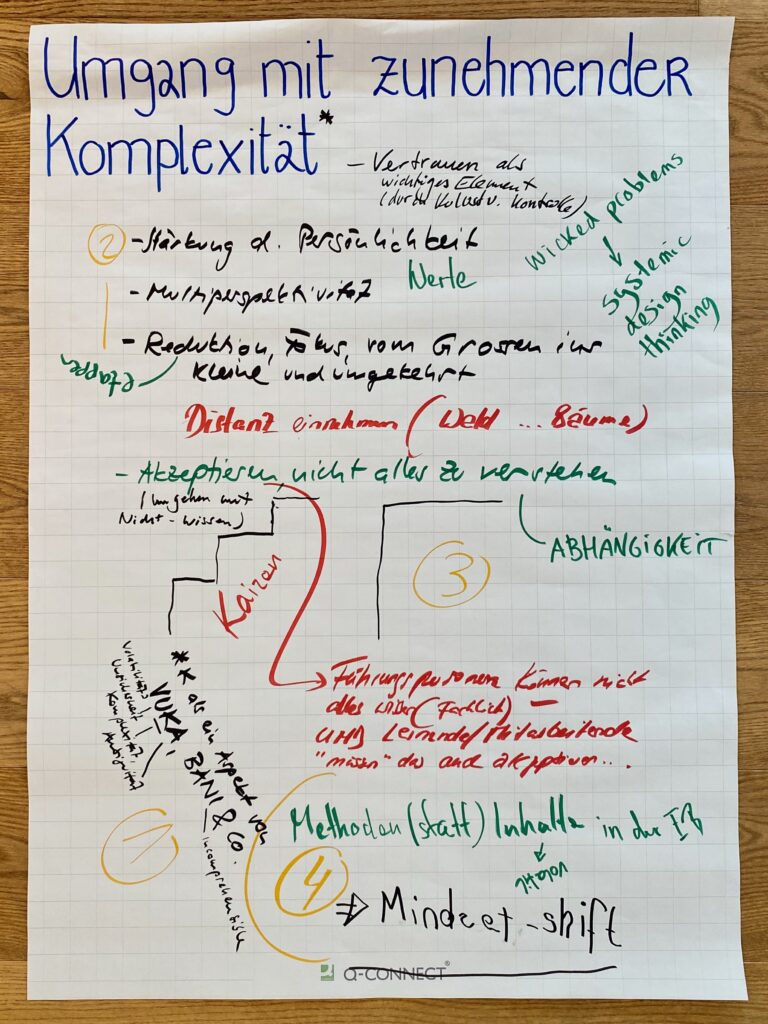
It was discussed how methods and reflection can help to bridge to better understanding without creating the illusion of being able to explain everything. Acceptance of ignorance and the ability to maintain distance were emphasised as crucial.
Dominant discourses on education and the future
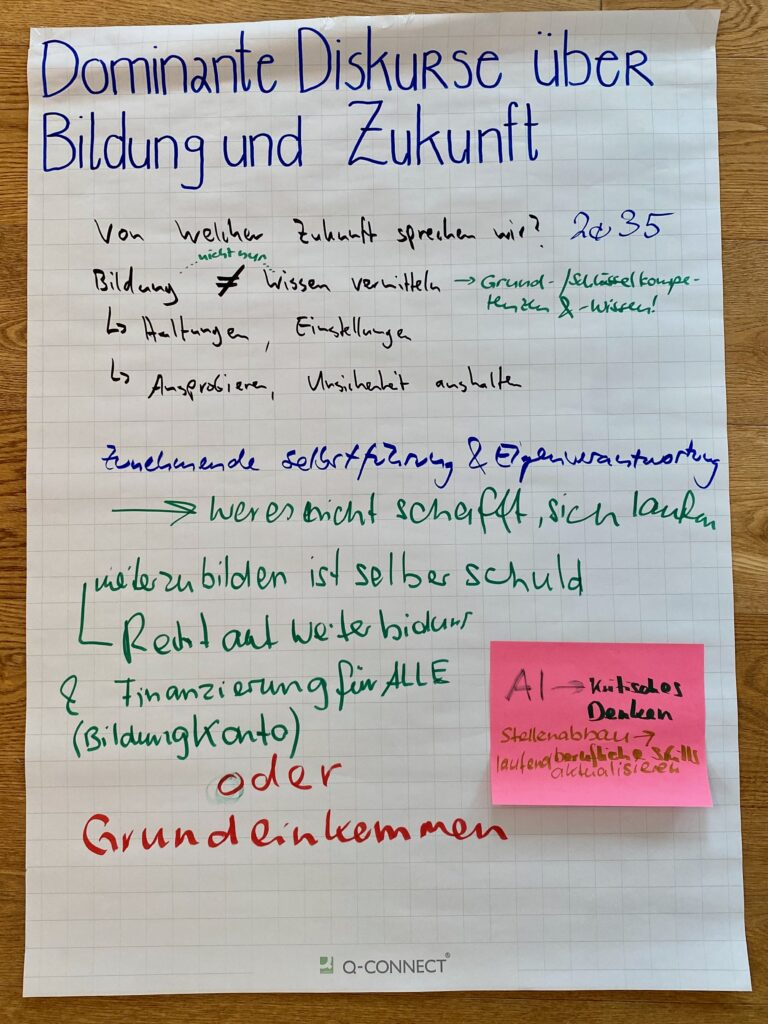
The discussion about education was linked to questions about its fundamental aims: Is it about imparting knowledge and basic skills, or about fostering resilience and creativity? It was also discussed which ideas about the future dominated the discourse and how adult education could develop its own concepts of the future. However, this reflection requires those involved in education to critically examine the norms and values that characterise their work.
Shaping the future and ethical considerations
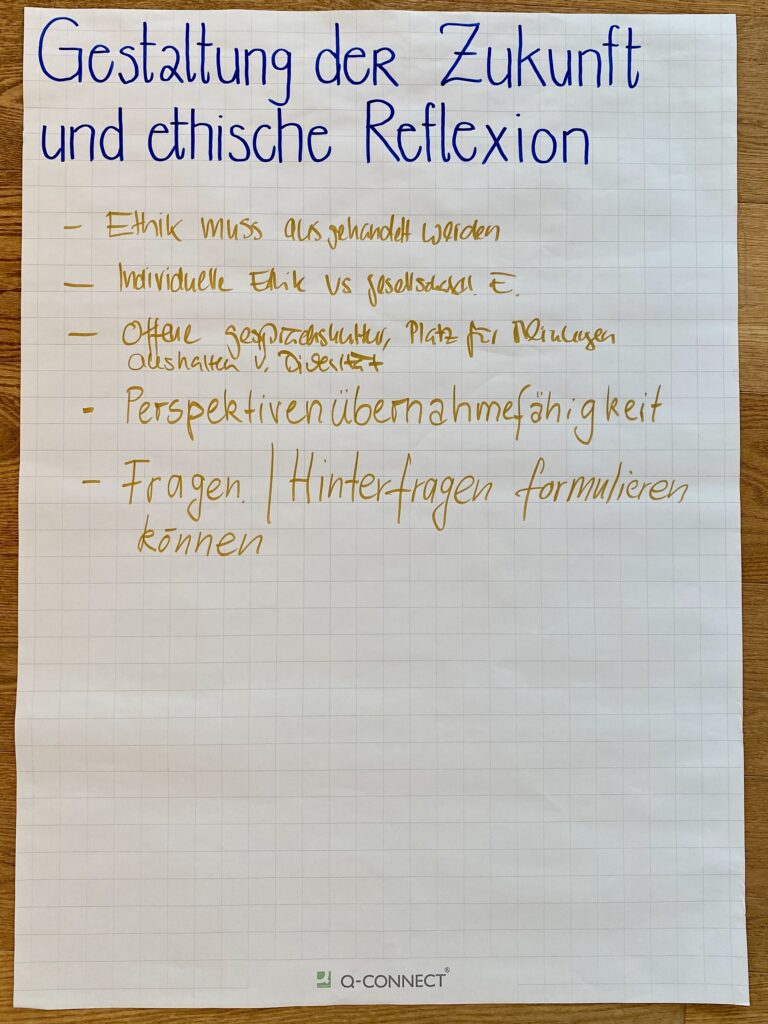
It was emphasised that ethical considerations consist primarily in enabling learners to reflect on different perspectives. Integrating ethics into educational processes requires education to focus not only on outcomes but also on the process of dealing with values and norms.
Linking individual skills development to societal visions
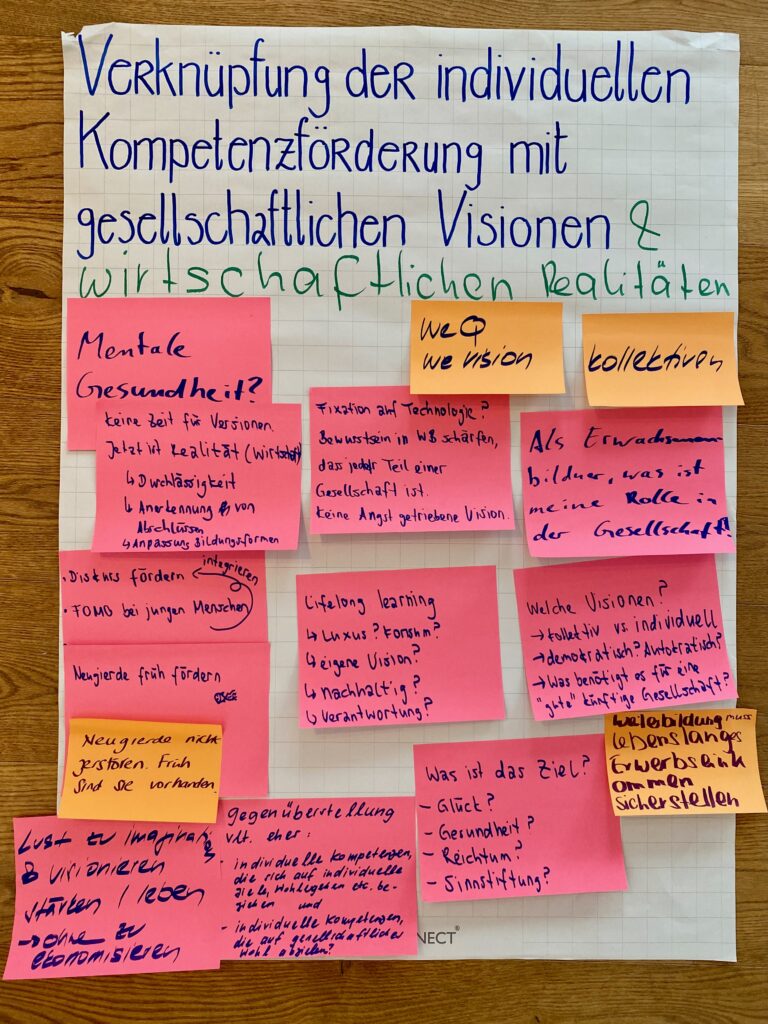
A key point of discussion was how to link individual skill development to collective goals. Participants emphasised the importance of curiosity and vision, which need to be given space in adult education. At the same time, the responsibility of teachers to critically reflect on their own role and to mediate between individual performance and collective prosperity was emphasised.
Toolbox: To put the food for thought into practice, what tools can TRANSIT create?
Finally, we were interested in how the inspiration and food for thought from the TRANSIT events and trend reports could be better utilised for the practical work of those involved in adult education. The appropriate format was the “silent discussion”. Participants were invited to visualise their thoughts and visions on a large table covered with wrapping paper.
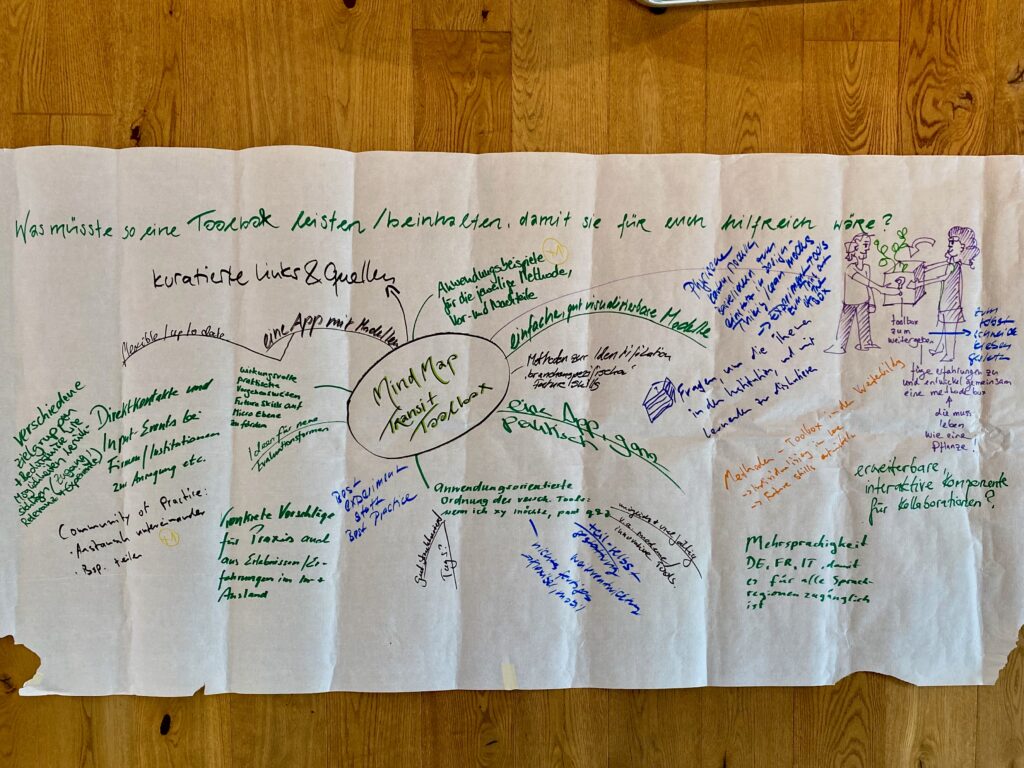
Photo: Irena Sgier
It became clear that participants have different needs and expectations in terms of formats and content. There was a desire for a community of practice to share experiences and innovative perspectives. At the same time, there was a perceived need for a platform with curated information.
Some participants would appreciate simple and well-visualised models that present complex relationships in an understandable way. Tools that help people to think “out of the box” are a similar direction. It was important to participants that such formats do not offer rigid solutions, but allow sufficient flexibility and mobility to respond to individual needs and specific contexts.
See you soon
The programme was challenging. A lot of work and visioning had been done by all the participants. The evening ended with a delicious and rich aperitif. But the future of adult learning and education was also the subject of lively discussion.
Many of the ideas and suggestions gathered will be included in the next TRANSIT Trend Report, which will be published in early 2025. TRANSIT would like to thank all participants for their visionary ideas.

Photo: Irena Sgier
